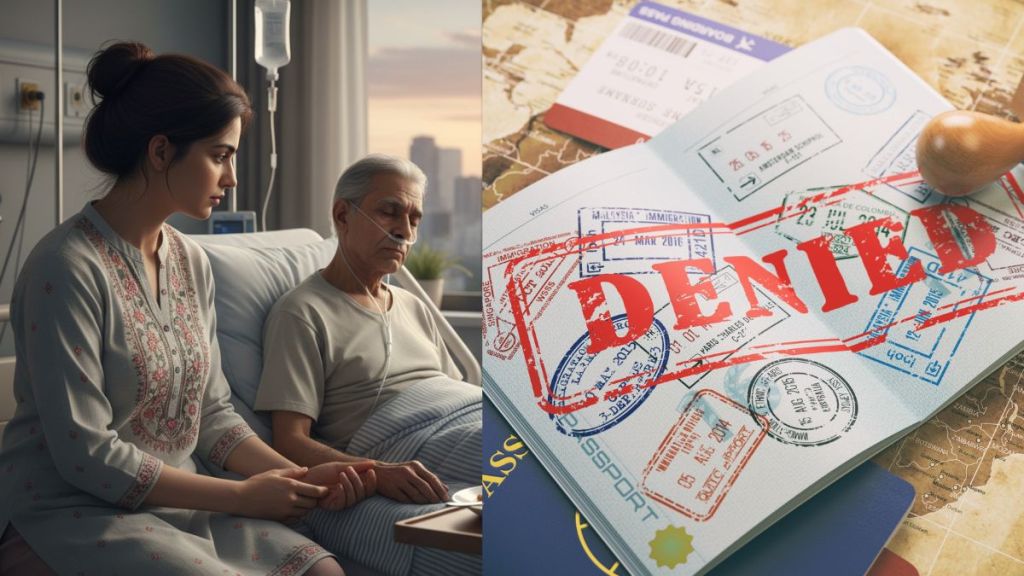The recent changes to the H-1B visa program have left many confused, especially when it comes to deciding whether pursuing the American Dream is still worth it.
Under a new proclamation from President Donald Trump, a $100,000 fee has been introduced for new H-1B visa applications, a sharp increase from the previous fee range of $2,000 to $5,000.
The goal behind this steep hike is to prioritise higher-skilled, better-paid workers and create more job opportunities for American workers.
It is important to note that this $100,000 fee applies only to new applicants and is a one-time charge. It does not affect visa renewals, those who already hold an H-1B visa, or applicants who submit their applications before the specified deadline.
In a social media post, an H-1B visa holder has sparked conversation about the emotional and professional dilemmas faced by many immigrants in the United States, particularly when a family crisis arise amid the recent changes in the visa system.
What does the post explain?
The young immigrant in their mid-twenties had recently transitioned from F-1 OPT to H-1B status, shared their emotional turmoil as they grapple with a critical family situation, their father’s deteriorating health back home. The individual is now asking whether staying in the US is actually worth it over the recent visa restriction.
“Do I just give up on the US if I can’t even go home?” the post begins. He goes on to explain that while their visa status technically keeps them safe in the US, leaving the country could trigger an unpredictable and potentially expensive situation upon reentry, particularly due to a recent proclamation that could impose a $100k fee for visa holders attempting to return.
Some immigration lawyers say the fee may apply, others disagree, there is widespread uncertainty surrounding the new rules, leaving many visa holders in a difficult position. The writer adds that their employer, aware of the risks, wants them to stay in the US and avoid traveling back. But for the poster, the dilemma is deeply personal.
“I’m in my mid-twenties and for the first time I’m asking what’s the point of being here if I can’t even go back when something important in my life happens?” the post continues. The uncertainty of the situation has forced them to reconsider their future: Should I return home to be with family, even if it means giving up the career and opportunities I’ve worked so hard for in the US?
For many immigrants, the choice between career success and family responsibilities is one of the hardest decisions they face. “I could get a good job in my home country,” the post states. “I wouldn’t make nearly as much as I could make here, but is it even worth it? I think I’m young enough to move back and start a career elsewhere, but why do I want to stay in a country that doesn’t even want me to stay?”
‘You should move back’
Netizens posted their opinion on the comments. A user wrote, “You can always find another job, but no amount of money is worth the ability to be with your dad.”
Another added, “It’s no longer a problem for existing holders. Just go see your family!. “The one who chased dreams felt maybe he should have stayed home. And the one who stayed home felt maybe he should have chased some dreams,” added another user.
“I’m 51 so I’m a few years ahead of you. If there is one big thing I’d do differently if I could go back to my 20s…. I would prioritize family and friends over career. My focus on career got me a long ways (I’m a VP) but I gave up precious time with my parents to do so. I would gladly pay any amount of my net worth right now just to have one more day with my mom (lost her to Covid),” explained a netizen.
“Just go back and be with family. You’ll regret it otherwise. You’ll find career opportunities eventually, maybe even a way to get back to the US,” stated a user.
(This story is based on a post shared by a social media user. The details, opinions, and statements quoted herein belong solely to the original poster and do not reflect the views of Financialexpress.com. We have not independently verified the claims.)


